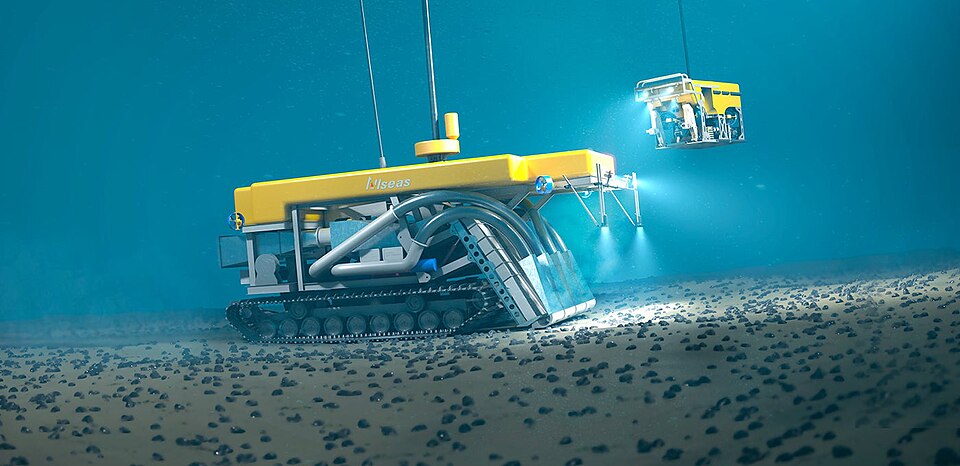Former U.S. President Donald Trump has signed a bold executive order to push forward deep-sea mining both within U.S. waters and in international seas. This move has stirred global debate, with China claiming it violates international law.
A Push for Undersea Minerals
On Thursday, Trump announced a new order that opens up the sea floor to large-scale mining. His goal is to help the United States lead the race for rare minerals like cobalt, lithium, and rare earth elements. These minerals are vital for high-tech industries such as electric cars, green energy, defense, and medicine.
The deep sea holds billions of tons of small, rock-like nodules. These are known as polymetallic nodules and are rich in key minerals. They sit 3,000 to 6,000 meters below the ocean surface. Trump’s plan aims to allow U.S. companies to explore and extract these resources faster than ever before.
Skipping UN Talks
Trump’s decision comes while many countries are still negotiating rules for deep-sea mining under the United Nations. These talks are focused on how countries should share the ocean’s resources fairly.
The United Nations Convention on the Law of the Sea (UNCLOS) has been working on a framework for mining in “areas beyond national jurisdiction” for years. Most nations, including China and EU members, have waited to start mining until the talks are done. They want clear rules and stronger science before making moves under the sea.
But the Trump administration has chosen to move ahead. It will speed up the process of giving out mining permits in U.S. waters and in global areas not owned by any one country.
China’s Strong Response
China was quick to react. Guo Jiakun, a spokesman for China’s foreign ministry, said Friday, “The U.S. authorization… violates international law and harms the overall interests of the international community.”
China is currently the world leader in mining and processing rare earth minerals. This gives the country a strong grip on the global supply chain. Analysts say Trump wants to challenge this and close the gap between the U.S. and China in this field.
A U.S. official said on Thursday, “We want the U.S. to get ahead of China in this resource space under the ocean, on the ocean bottom.”
Promises of Economic Growth
The executive order claims that deep-sea mining could boost the U.S. economy by $300 billion over 10 years and create 100,000 new jobs. This promise has caught the interest of several mining companies. One of them is The Metals Company (TMC), which is already talking with the U.S. government to get permits.
TMC’s CEO, Gerard Barron, hopes to begin mining before the year ends. He argues that environmental fears are overblown. According to Barron, the deep-sea zone they plan to mine has very low levels of life.
“There’s zero flora down there,” he said. “In terms of biomass, we’re talking about 10 grams per square meter. That’s much lower than the 30 kilograms of biomass in places like our tropical forests, where people are cutting down trees for mining.”
Worries from Environmental Groups
However, scientists and green groups are raising alarms. Jeff Watters of Ocean Conservancy said, “Deep-sea mining is a deeply dangerous endeavor for our ocean.”
He warned that the harm would not just stay on the ocean floor. It could spread through the water column and affect many forms of marine life.
Past research supports this concern. A recent study by the UK’s Natural History Museum and the National Oceanography Centre looked at a deep-sea mining test done in the 1970s. The study found that some small creatures came back to the mined area. But larger animals did not return.
The reason? Scientists say these animals rely on polymetallic nodules to live. Since those nodules take millions of years to form, they can’t be replaced anytime soon.
Call for a Global Pause
Many nations, including the EU and the UK, want a pause or moratorium on deep-sea mining. They believe more research is needed to fully understand the long-term effects on the ocean. They argue that we should not harm the planet in the rush for short-term gains.
Trump’s move could shape the future of deep-sea mining. It may lead to new jobs and boost the economy. But it also raises big questions about ocean health and global cooperation. As more companies seek to mine the sea floor, the world watches to see how the U.S. will act—and how other countries will respond.



